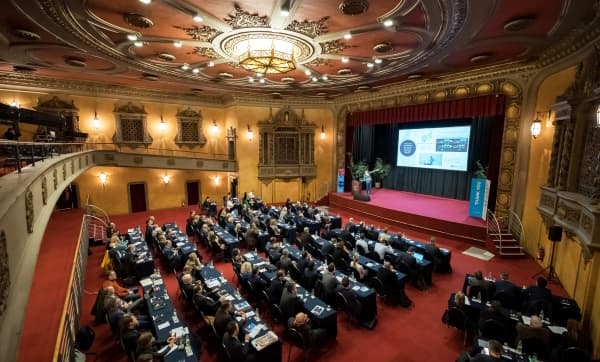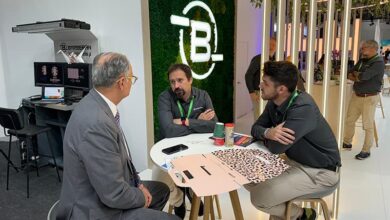Europe’s Packaging Industry Gears Up for Sustainable Future

Brussels recently played host to Shaping the Future of Packaging, the conference jointly organised by Intergraf, the European federation for the printing industry, and FTA Europe, representing the European flexographic printing industry. Held at the classy Le Plaza Hotel on 9 and 10 March, 2023, the event brought together leaders of Europe’s packaging industry for two days of learning and collaboration. Close to 120 individuals from 18 countries joined in to discuss why innovation is needed, and how companies along the supply chain are playing their part.
Packaging is a fast growing sector, with an annual growth rate of 1.7% forecast until 2027. New regulations are also driving rapid change and innovation.
One think evident from the discussions was that sustainability is no longer considered optional but a mandatory requirement, and that the packaging supply chain has a key role to play in the green transition.
Tom Hallam, Project Director, Packaging Consultancy at Smithers spoke of how “sustainability is the primary driver of change for key stakeholders in the supply chain.” He further explained that products will be far more policed going forward and producers will have to ensure that claims can be properly backed up. As the same applies for packaging waste, Hallam urged packaging producers to “be prepared, because you will have to prove that you can supply packaging that meets recyclability standards.”
Leading the way for brands, Francisco Nogueira, Packaging Innovation Manager at The Coca-Cola Company, presented ‘World Without Waste’, the company’s sustainability platform. In his opinion, the beverage company is well aware of the global waste problem and wants to play a role in solving the issue. “Focussing on three key concepts of design, collect, and engage, our ultimate end goal is zero waste and zero emissions,” says Nogueira.
For Susanne Lippitsch, Packaging Designer at SL Design, design is the key to any successful packaging product. She shared insights into the life of a packaging designer, highlighting that “packaging should appeal to as many senses as possible, as well as fitting the product, being emotional, and being sustainable.”
Jan ‘t Hart, HG2.0 Project Manager at AIM (European Brands Association) presented the digital watermark Holy Grail 2.0, showcasing the innovative possibilities it offers in sorting and recycling. “Using the same principle as a QR code, the pattern of the watermark is incorporated into the packaging’s decoration, remaining invisible to the human eye,” explains Hart. He also spoke about the importance of technical innovations that are necessary for Europe to reach its recycling targets.
Peter Ragaert, Director at Pack4Food and Professor at Ghent University, focused on the functionality, convenience, and sustainability of food packaging. He highlighted the important role packaging plays in preventing the current high rate of food loss and how innovative solutions can help reduce it.
The panel also discussed the role of regulations, like the European Union’s Packaging and Packaging Waste Regulation (PPWR) in shaping the future of the packaging industry. Companies must comply, so such policies create ripples of change throughout the industry. The importance of creating consumer awareness about the benefits and critical role of packaging was also mentioned.
Maja Desgrées du Loû, Desk Officer (DG Environment) at the European Commission, who plays a part in drafting the PPWR explained the importance of the legislation, “Without this regulation, packaging waste would continue to grow. Plastic packaging will rise by an estimated 40% if nothing is done.” The Commission’s proposal is to be negotiated by the national governments and the European Parliament, with adoption of the final text expected in March 2024.
Olga Munroe, Head of The Retail Institute at Leeds Beckett University, felt the need for people to talk more about food waste that can be avoided by wrapping something. “Both food waste and packaging waste are important, but we need to find the right balance. More consumer awareness is needed for this, but it shouldn’t come from the industry. What consumers want is for the national media and NGOs to tell them about it,” she adds.
As the packaging industry is a major stakeholder in Europe’s evolution to a green and circular economy, packaging producers and regulators need to work in tandem to face the complex challenges of the market and ensure a smooth transition.





